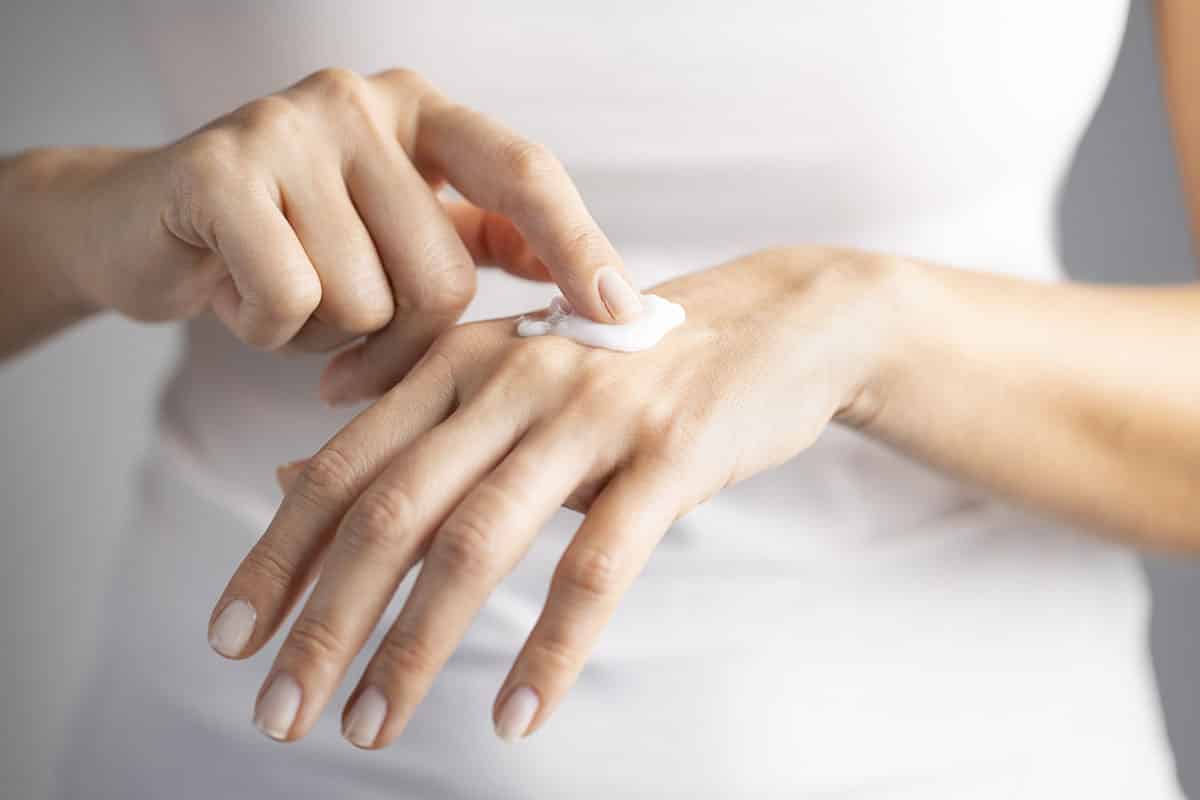The coronavirus pandemic has caused a dramatic increase in handwashing and those wearing gloves. Though frequent hand washing is always necessary for health and safety, it does have one unpleasant side effect. Your hands get dry, which can look and feel unpleasant. Repeated hand washing and the use of alcohol-based hand sanitizer strips the natural oils from the skin, resulting in drying and cracking.
Doctors, nurses, and other health care professionals are particularly prone to dry skin on the hands. They wash their hands and use hand sanitizer many times a day, and they wear latex gloves, which can also damage the skin’s ability to produce enough natural oils. Dishwashers, hairstylists, and production workers are also more prone to dry hands because their hands are repeatedly exposed to gloves, chemicals, and soaps.
Underlying health conditions such as diabetes or lupus can restrict blood flow to the extremities and cause dry hands. Skin diseases, such as eczema and psoriasis, can cause dry skin on the hands and other areas of the body, and also cause the skin to peel and crack. Aging also contributes to problems with dry skin. Skin naturally loses its protective oils as we age, so the older we get, the more prone we are to dry, cracked skin on the hands.
How can gloves damage the skin?
Wearing latex gloves is a normal part of life for those in the medical field, and with the global pandemic, more people are wearing them to protect from the coronavirus. Unfortunately, the use of gloves can have a damaging effect on the hands.
Skin damage and irritation occur from prolonged exposure to the restrictive, sweaty environment produced by wearing gloves. Moisture on the skin strips away the natural barriers of the skin like essential lipids. Without a healthy natural barrier, the skin is more vulnerable to harmful irritants that can thrive in a warm, moist environment. Compromised skin can lead to problems like chronic contact dermatitis or severe chafing and chapping.
How can you keep your hands from drying out?
Taking steps to limit the drying out of our skin is the first line of defense. Do not skip hand hygiene as that poses a risk for serious illnesses. If you have the option, avoid hand sanitizer when possible. Instead, use a gentle soap made from natural ingredients and warm water. Hand sanitizer is necessary for the medical field, and when you do not have access to soap and water. Try replacing your regular brand with one that contains aloe vera along with the same alcohol content as other hand sanitizers.
To help prevent, or treat, dry skin on the hands, try the following:
- Use a high-quality moisturizer that is thick and creamy, without scents that can irritate the skin after every hand wash and after wearing gloves. Pure coconut oil is a good option and doesn’t contain chemicals that can create further problems.
- Aloe vera has antibiotic and anti-inflammatory properties. Use moisturizing products that contain aloe vera to protect skin from drying out. These products tend to be thinner and absorb quicker, so it may be a good idea to apply this to your hands before applying gloves.
- Avoid hot-air dryers in public restrooms. The hot air excessively dries out the skin, so skip the dryer and use paper towels to blot your hands dry.
- Exfoliate your hands occasionally to remove dead skin cells that can cause hands to feel rough and calloused. Over the counter products, or a pumice stone will work, but be careful not to damage healthy skin.
- Create a healthy soak from oats mixed with natural oil, like olive oil. Oats help to rejuvenate the skin, so mix a small amount of warm oil with raw oats and soak your hands for as long as you like.
- Do an overnight treatment by finding the thickest, creamiest hand cream available. Remember, the fewer chemicals in the lotion, the better. Slather a thick coat onto your hands, then put on cotton mittens or socks on your hands overnight. The material helps keep the moisture against your skin to be absorbed throughout the night. The next morning, your hands should feel soft and rejuvenated.
Tip: all of the tips above work well for excessively dry feet as well.

